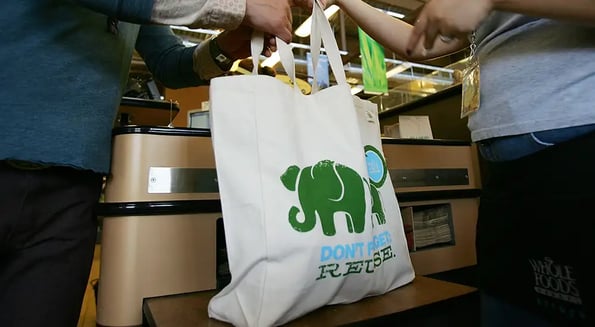David McNew/Getty Images

Our collective obsession with single-use plastic bags seems to be continuing unabated, with around 500B used each year and only 3 states having laws outright banning them.
That has led to the rise of the reusable “bag for life,” a sturdier alternative that was supposed to discourage the flimsier, drain-clogging, and animal-killing alternative.
But a new study questions whether these bags are any better because of their significantly higher plastic content. According to a report from Greenpeace and the UK’s Environmental Investigation Agency, the bags have become a significant factor in the “plastic footprint” of the largest UK supermarkets.
Save us, Sir David
Shoppers in the UK have increasingly become aware of the plastic problem, in no small part thanks to the BBC documentary series “Blue Planet II,” narrated by Sir David Attenborough. He urged viewers to lower their plastic footprints, with government officials saying they were “haunted” by the images from the series.
This led to the UK Plastics Pact with the biggest British grocers such as Tesco, which pledged to replace traditional plastic bags with reusable or recyclable material. But instead of a drop in plastic consumption, the new study shows the opposite is happening.
How to reverse course?
The answer may be in the pricing. The report urges British supermarkets to raise the cost of the sturdy bags up to at least 70 pence — equivalent to 90 cents — apiece. Sales of the bags fell 90% in neighboring Ireland when grocers there raised prices.

